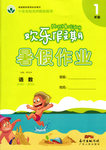题目内容
I receive many letters from children and can’t answer them all--there wouldn't be enough time in a day. I’ll try to answer some of the questions that are mostly asked. Where did I get the idea for Stuart Little and for Charlotte's Web? Well, many years ago, I went to bed one night in a railway sleeping car, and during the night I dreamed about a tiny boy who acted rather like a mouse. That's how the story of Stuart Little got started.
As for Charlotte's Web, I like animals and my farm is a very pleasant place to be--at all hours. One day, when I was on my way to feed the pig, I began feeling sorry for the pig because, like most pigs, he was going to die. This made me sad. So I started thinking of ways to save his life. Three years after I started writing it; it was published(出版). ( I am not a fast writer, as you can see.)
Sometimes I'm asked when I started to write, and what made me want to write. I started early -as soon as I could spell. Children often find pleasure through trying to set their thoughts down on paper, either in words or in pictures. I was not good at drawing, so I used words instead. As I grew older, I found that writing could be a way of making a living.
Well, here is the answer to the last question. No, they are imaginary (虚构的) stories. In real life, a family doesn't have a child who looks like a mouse and a spider doesn't write words in her web. Although my stories are imaginary, I like to think that there is some truth in them, too--truth about the way people and animals feel, think and act.
1.The writer wrote this passage to .
A. introduce his new books.
B. introduce two funny stories
C.explain why he enjoys writing
D. answer some readers’ questions
2.We can know from the passage that the writer is a person who .
A. writes imaginary stories for children
B. writes very fast.
C. mainly writes stories for adults
D. works on a friend’s farm
3.The writer started to write because he wanted to .
A.improve his spelling
B. express his thoughts
C. show his sadness
D. make a good living
4.What is probably the last question?
A.Are your stories true?
B. What is the truth in your stories?
C. Will you write more imaginary stories?
D. Do you know a child looking like a mouse?
1.D
2.A
3.B
4.A
【解析】
试题分析:作者收到了许多孩子的来信,由于问题太多,作者没有足够的时间来一一进行回答。作者就挑了一些问的最多的问题进行解答。
1.I receive many letters from children and can’t answer them all-there wouldn't be enough time in a day. I’ll try to answer some of the questions that are mostly asked.”可知,作者是在回答孩子们提出的问题,故选D。
2.I dreamed about a tiny boy who acted rather like a mouse. That's how the story of Stuart Little got started.”可知,作者写的故事都是关于动物的,而且来信都是孩子们写的,说明孩子是这些图书的主要阅读人群,故选A。
3.Children often find pleasure through trying to set their thoughts down on paper, either in words or in pictures. I was not good at drawing, so I used words instead.”可知,作者从事写作是想把自己的想法表达出来,故选B。
4.No, they are imaginary (虚构的) stories. In real life, a family doesn't have a child who looks like a mouse and a spider doesn't write words in her web.”可知,作者的回答是否定的,即这些故事是虚构的,不是真实的,说明最后一个问题是“这些故事是真实的吗?”,故选A。
考点:教育类短文阅读

 学而优暑期衔接南京大学出版社系列答案
学而优暑期衔接南京大学出版社系列答案 Happy holiday欢乐假期暑假作业广东人民出版社系列答案
Happy holiday欢乐假期暑假作业广东人民出版社系列答案Most teens I meet these days lack basic social courtesy when dealing with people.
My own son, who basically grew up with his grandmother, the original guru, has perfect table manners. This is partly because he was to manners at a very young age. However, when we eat at home, he would not manners. So I asked him why. He said,” I behave the way I am supposed to when I’m out, but when I am at home I want to be .”
That’s when I realized that most parents, myself included, do their children the proper way to behave outside the home, but they are also to believe that at home, anything goes.
My to him was “good behavior has nothing to do with where you are or whom you are with”.
Then he answered, “But I behave when I’m with others so that they think better of me.” And that is when I realized that I was doing things all . I explained to him that it had nothing to do with what people think. This him even more.
So I went on to explain that behavior, whether in your everyday with people or at the dining table at home, is an of who you are. Well, at the age of 13, he got it.
So basically, what I am saying is that teaching your children comes with the underlying lesson that it is not about to do or not to do, but rather, who they are. This way it is not ; it comes from within.
Teach your teens or children the courtesy of greeting their friends’ parents and themselves when they go to someone’s home. Teach teenage boys to open the door of a car, or any door that matter, for any girl, whether they are their girlfriends or not. This includes holding elevator doors or letting women step out of the elevator first.
Just that teenage boys who practice good manners’ and courtesy grow up to become men who respect people in general.
| 【小题1】 |
|
| 【小题2】 |
|
| 【小题3】 |
|
| 【小题4】 |
|
| 【小题5】 |
|
| 【小题6】 |
|
| 【小题7】 |
|
| 【小题8】 |
|
| 【小题9】 |
|
| 【小题10】 |
|
| 【小题11】 |
|
| 【小题12】 |
|
| 【小题13】 |
|
| 【小题14】 |
|
| 【小题15】 |
|
| 【小题16】 |
|
| 【小题17】 |
|
| 【小题18】 |
|
| 【小题19】 |
|
| 【小题20】 |
|